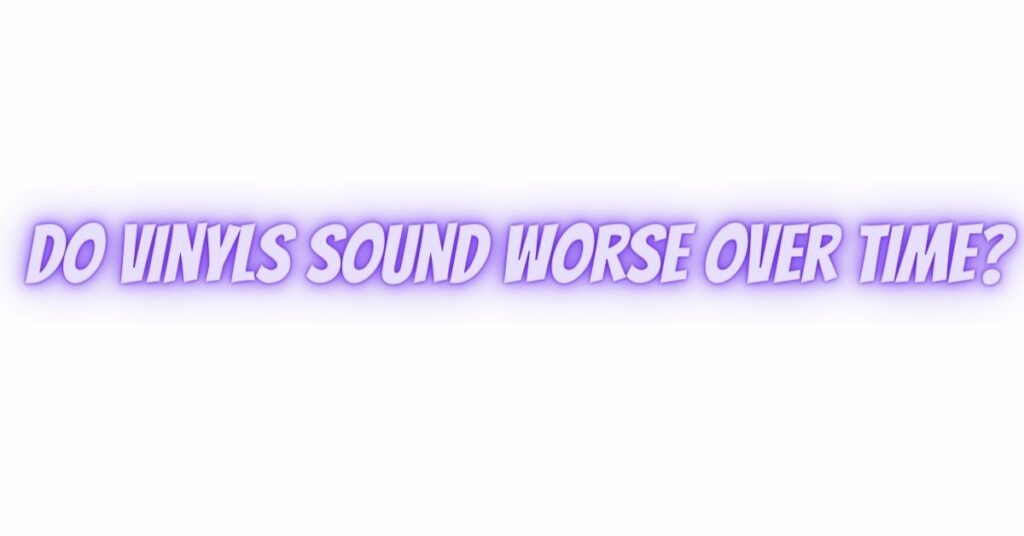Vinyl records, despite their resurgence in popularity, have a reputation for being delicate and prone to deterioration. Many audiophiles and collectors have expressed concerns that vinyl records may degrade with time, causing them to sound worse over the years. In this article, we will explore the factors that can impact the longevity and sound quality of vinyl records and separate fact from fiction regarding their perceived decline in audio quality over time.
Vinyl Records and Their Composition
To understand the potential degradation of vinyl records, it is essential to grasp their composition and how they work. Vinyl records are made of polyvinyl chloride (PVC) and consist of grooves that store the audio information. The grooves are read by a stylus, which translates the analog information into audible sound. Several factors can affect the condition of vinyl records over time.
- Physical Wear and Tear
Physical wear and tear are among the most common culprits in the perceived decline of vinyl records. Repeated playback with a stylus can cause friction and wear on the grooves, which, in turn, may lead to a loss of audio fidelity. The more a record is played, the more susceptible it becomes to surface noise, pops, and clicks.
- Dust and Debris
Dust, dirt, and debris can accumulate on the surface of vinyl records, affecting sound quality. This contamination can cause crackling and interference during playback, leading to the perception that records sound worse over time.
- Improper Storage
Proper storage of vinyl records is critical to their longevity. Exposure to extreme temperatures, humidity, and direct sunlight can damage records and warp them, causing distortion during playback. Storing records vertically and in protective sleeves can mitigate some of these issues.
- Manufacturing Quality
The quality of manufacturing plays a significant role in a vinyl record’s lifespan and playback quality. High-quality records produced with care are less likely to degrade rapidly. Conversely, poorly manufactured records may deteriorate sooner and exhibit more audible flaws over time.
Dispelling the Myth
While the factors mentioned above can indeed impact the condition and playback quality of vinyl records, it’s essential to clarify that vinyl records do not inherently “sound worse” over time. With proper care and maintenance, vinyl records can maintain their sound quality for decades.
In fact, well-preserved vintage records often exhibit a particular charm and warmth that some audiophiles prefer. The slight pops and crackles can contribute to the nostalgic appeal of vinyl, enhancing the overall listening experience.
Preserving Vinyl Records
To ensure that vinyl records maintain their sound quality and lifespan, collectors and enthusiasts should follow these best practices:
- Handle with Care: Always handle records by the edges to avoid smudging and contamination. Clean hands or cotton gloves can help prevent fingerprints on the surface.
- Clean Records Regularly: Invest in a good-quality record cleaning kit and routinely clean your vinyl records to remove dust and debris.
- Proper Storage: Store records vertically in a cool, dry, and dark environment, away from direct sunlight and extreme temperatures. Protective sleeves can also help prevent surface damage.
- Use High-Quality Equipment: Ensure that your turntable and stylus are in good condition. Misaligned or worn-out equipment can damage records during playback.
Conclusion
While vinyl records can be susceptible to wear and tear, they do not inherently sound worse over time. Proper care, handling, and storage can help maintain their sound quality and even contribute to the unique charm of vintage records. Vinyl enthusiasts can continue to enjoy their beloved analog format for many years, preserving the warmth and character that make vinyl records a cherished medium for music lovers.


